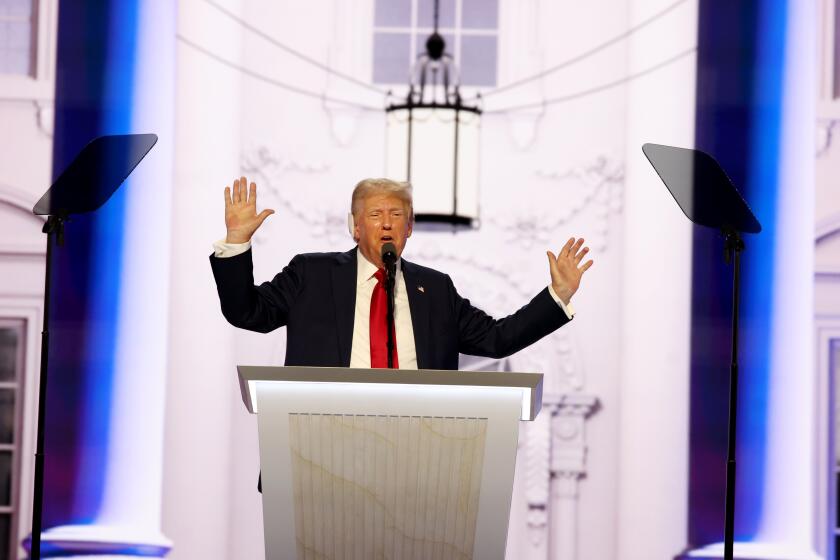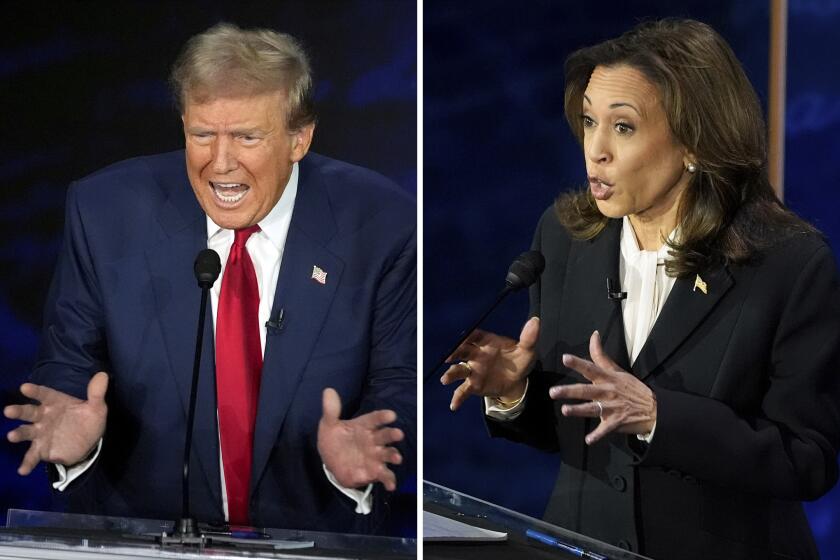Legalize marijuana? Not so fast
Marijuana advocates are cheering the Assembly’s Public Safety Committee for voting out a measure Tuesday designed to legalize, tax and regulate the sale of the drug to adults 21 and over. The bill is being marketed as a revenue raiser; the Board of Equalization estimates that the state could reap up to $1.3 billion in sorely needed tax revenue, and proponents have skillfully wielded the budget crisis to boost support for the measure.
Polls show that 56% of Californians back legalizing marijuana. Across the country, the numbers are somewhat lower, but nevertheless momentum is building for a reconsideration of marijuana laws covering both medicinal and recreational use. Many states now treat marijuana offenses as mere infractions, not subject to jail time. The American Medical Assn. recently reversed its long-held position and urged more research into the drug’s properties.
Still, for California to purport to legalize marijuana unilaterally raises several serious concerns. For one thing, to do so simply because the state faces a budget crisis would be a rash and reckless way to make public policy. More important, California does not have the authority to take such a step. Cannabis may be the nation’s largest cash crop, but marijuana remains a Schedule I drug, deemed by the federal government to have a high potential for abuse, no accepted medical value and illegal to use under all circumstances. Perhaps Californians have been emboldened by their pioneering role in legalizing medicinal marijuana, but in truth, the conflict between state and federal law has had serious consequences for users and distributors caught in the federal web. Yes, the Obama administration now has a formal policy of ignoring medical marijuana activity in states that have passed laws permitting its use, and the Justice Department has halted raids on dispensaries and prosecutions of sick patients. But that is merely a truce. Widespread legalization for recreational purposes is almost guaranteed to upset the delicate detente with Washington.
AB 390, sponsored by Assemblyman Tom Ammiano (D-San Francisco), would not be an appropriate first step for California. It’s true that a $50-per-ounce fee is included in the bill that would go to anti-drug programs. But that’s not enough. The state needs a thorough airing of the pros and cons of legalization and the pitfalls related to abuse of the drug before taking such dramatic action. We welcome a debate over legalizing marijuana, but we do not support this bill.
More to Read
Get the L.A. Times Politics newsletter
Deeply reported insights into legislation, politics and policy from Sacramento, Washington and beyond. In your inbox three times per week.
You may occasionally receive promotional content from the Los Angeles Times.









